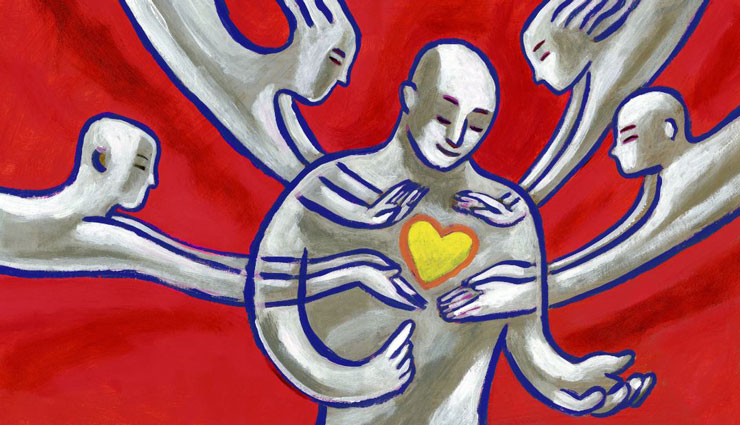Helping others is a good thing that has been recommended for centuries in our educational literature, religion, and customs, and many have talked about its spiritual benefits, but does helping have other uses? Science has also proven that helping has tangible and measurable benefits for our bodies. In this article, by reviewing several studies, we explain what benefits helping others has for our physical and mental health. Stay with us until the end of the article.
The psychology of helping others
Why do we help others? The answer to this question may vary depending on the number of people who do it. However, psychology has a comprehensive solution for that. We have a desire to help others for two reasons. The first is related to the good feeling that is created in us. With the help of others, the part of our brain responsible for happiness and reward becomes more active. So, we help others to find inner happiness and satisfaction. But some help others with incredible selflessness. For example, those who donate a part of their body to another. Do they also do it just for inner satisfaction? Psychological and neuroscience researchers say that perhaps they are driven to do this because of their greater sensitivity to pain and suffering.
Whatever the reason for helping others, most of its benefits are definite and measurable.
Benefits of helping others with physical and mental health
1. Lower blood pressure
Being generous and helping others is good for our heart health. According to research, we are assisting others with lower blood pressure. The effect of this reduction is as much as eating healthy foods and exercising.
2. Increased life expectancy
One of the secrets of longevity is helping others. With years of research on the secret of people’s longevity, researchers have found that connecting each of us with a network of friends and acquaintances can increase our lives. We are social creatures, and we cannot live alone for long.
3. Reduce chronic inflammation
Chronic inflammation is one of the complications associated with many dangerous diseases. When we’re sick, our bodies need some inflammation to fight off viruses and bacteria, but when we’re not ill, chronic inflammation can take a toll on us. Chronic inflammation is so severe that half of the world’s deaths can be related to it.
According to research, helping others and participating in volunteer work can reduce this inflammation to some extent. The researchers analyzed the data of a thousand middle-aged people in two groups. The first group filled out a questionnaire about the amount of helping others and volunteering. The second group also completed a more formal questionnaire containing positive statements such as “I help charity.” In both groups, those with a history of charity and voluntary work had lower levels of inflammation in their bodies.
Other researchers have reached similar results. For example, in 2022, 63 people were told to help others for four random weeks whenever possible. The second group was told to focus only on self-care. The third group was considered the control group, and they were asked to go about their day without focusing on a specific task. The result was that the first group had the highest reduction in inflammation after four weeks. So, it is clear how much helping others affects our physical health.
4. Boosting the immune system
Another significant effect of helping others is strengthening the immune system. Various studies have shown that those with stronger social ties produce more antibodies when receiving the vaccine. They catch colds less and generally have a more robust immune system.
5. Reducing stress
Mammals, including humans, employ social care practices to cope with stress. Petting and cuddling are standard methods of reducing stress in mammals. When we pay attention to others, the part of the brain responsible for reward and happiness is activated. In contrast, the fear-related function associated with the hormone cortisol is turned off. Loving loved ones, helping others, and participating in volunteer work reduce cortisol hormone and, as a result, reduce stress.
6. Increase in endorphin hormone
The endorphin hormone produced in our brain plays a vital role in maintaining our mood. This hormone does not allow us to be depressed. By helping others and doing charity work, the good feeling we get leads to stimulation of the parts that secrete this hormone. As a result, its amount increases in our body.
There are many consequences to helping others.

There are many benefits to helping others, but like anything good, we must do it in moderation, or it will backfire. According to research, those who make the most sacrifices for others are 63% more likely to die than others. We should not neglect our own needs to help others. How much to help others is a matter that is determined by our preferences, time, money, and time. However, if we don’t sacrifice ourselves, helping others with other healthy life habits will improve our physical and mental health.
What is your experience of helping others?
What experiences do you have of helping others? What have you done to help others? Have you seen the effects mentioned in this article? In your opinion, in what ways can you help others? Please share your thoughts with us and other readers.
Warning! This article is only for educational purposes, and to use it, it is necessary to consult a doctor or specialist.



